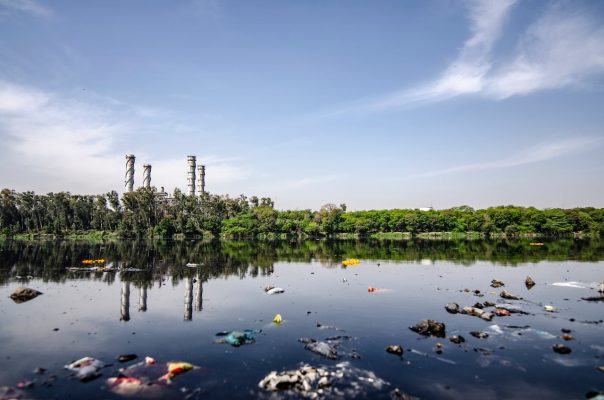While Florida is famed for its beautiful coastlines and year-round sunshine, it’s not the perfect fit for everyone. Some people find that the downsides, such as extreme weather and high living costs, outweigh the benefits. This article will explore ten reasons why living in Florida might not be as idyllic as it seems, providing insights into the less-discussed challenges that residents can face.
Extreme Weather

Florida’s geographical location makes it a hotspot for various forms of extreme weather. The state is well-known for its hurricane season, which runs from June to November, bringing with it the threat of significant property damage, flooding, and even loss of life. Additionally, Florida experiences high humidity levels and intense heat waves during the summer months, which can be uncomfortable and pose health risks, especially to the elderly and those with pre-existing health conditions. The combination of these factors can make living in Florida challenging for those who prefer a more temperate climate.
High Humidity

Florida’s high humidity is more than just a discomfort; it’s a persistent condition that can affect daily life. The state’s subtropical climate means that moisture levels in the air are often high, which can lead to a host of issues. For instance, the muggy atmosphere can exacerbate health problems such as asthma and allergies. It also encourages the growth of mold and mildew in homes, which not only damages property but can also pose health risks. The constant need for air conditioning to combat the humidity can result in higher energy bills, making it an economically challenging environment for residents. Moreover, the humidity can be particularly oppressive during the summer months, making outdoor activities and even simple tasks like laundry more challenging.
Pests

The warm climate in regions like Florida is a perfect breeding ground for a variety of pests, which can be a major nuisance. Residents often contend with mosquitoes, which are not only bothersome but can also transmit diseases. Termites pose a significant threat to wooden structures, leading to costly repairs. Encounters with palmetto bugs—large cockroaches—are common and unsettling for many. The state also faces challenges with invasive species such as the Burmese python, which disrupts the local ecosystem. These pest-related issues can significantly impact the desirability of living in such areas, as they can affect both the quality of life and property maintenance costs.
Traffic Congestion

Major urban centers in states like Florida are notorious for their traffic jams, which can be a source of daily frustration for residents. The congestion is particularly acute in cities such as Miami, where rush hour can lead to significant delays. This not only affects commuters but also has a broader impact on the environment due to increased emissions. The infrastructure, although constantly improving, struggles to keep up with the growing population and the number of vehicles on the road. For those who value ease of mobility and time efficiency, the persistent traffic congestion can be a compelling reason to reconsider living in such areas.
Hurricane Risk

The threat of hurricanes is a significant concern for residents in coastal states. These powerful storms bring with them the potential for devastating winds, heavy rainfall, and storm surges that can lead to flooding. The risk of hurricanes often requires homeowners to invest in additional insurance, and storm-proofing measures, and to have evacuation plans in place. The emotional toll of preparing for and potentially experiencing a hurricane can be considerable. Moreover, the aftermath of such storms can disrupt lives and communities for months or even years, as rebuilding efforts take time and resources. This risk is a major consideration for anyone thinking about making such areas their home.
High Cost of Living

The high cost of living in Florida can be a deterrent for many. From the steep housing market, particularly in cities like Miami and Orlando, to the elevated prices of everyday necessities, the financial burden can be significant. The state’s popularity as a tourist destination often inflates the cost of services and entertainment, further straining the budgets of residents. Additionally, while Florida does not have a state income tax, other taxes, and insurance costs, especially in hurricane-prone areas, can add up, making it challenging for those seeking an affordable lifestyle.
Frequent Flooding

Florida’s landscape is particularly vulnerable to flooding due to its flat terrain and extensive coastline. Cities like Miami are experiencing an increase in flood events, not only from storms but also as a result of sea-level rise. This frequent flooding can lead to property damage, mold growth, and can even affect the potability of water. The need for robust flood defenses and insurance can be financially burdensome for homeowners. Moreover, the disruption caused by these flood events can impact daily life, from transportation delays to the potential for long-term environmental damage.
Tourism Crowds

Florida’s status as a top tourist destination means that certain areas can become extremely crowded, especially during peak vacation seasons. Attractions like Disney World and Miami Beach draw millions of visitors annually, leading to congested attractions, beaches, and roads. This influx can diminish the quality of life for residents, who may face longer wait times, crowded public spaces, and increased noise levels. The tourism industry also puts pressure on local infrastructure and resources, which can lead to a strain on public services and utilities. For those seeking a quieter, less hectic lifestyle, the constant presence of tourists can be a significant drawback.
Invasive Species

Florida grapples with a significant invasive species problem, which has far-reaching impacts on its native ecosystems. Species such as the Burmese python, lionfish, and giant African land snail have become notorious for their destructive effects. These invaders compete with native species for resources, often leading to a decline in biodiversity. The Burmese python, for example, preys on a wide array of native wildlife in the Everglades, disrupting the natural balance. The lionfish, a venomous coral reef dweller, consumes juvenile fish at an alarming rate, threatening the marine ecosystem. On land, the giant African land snail poses a risk to agriculture and can carry a parasite harmful to humans. The presence of these and other invasive species can be a major concern for residents and environmentalists alike.
Environmental Concerns

Florida faces a myriad of environmental challenges that can affect residents’ quality of life and the natural beauty that many seek in the state. Issues such as coastal pollution, ecological challenges in the Everglades, and harmful algal blooms in Southwest Florida are significant. The state is also described as “ground zero” for the impacts of climate change in the U.S., with problems like sea-level rise leading to more frequent flooding and threatening freshwater supplies. Additionally, Florida’s environmental policies have been criticized for not adequately addressing these issues, which could lead to long-term detrimental effects on the state’s diverse ecosystems. These environmental concerns are important considerations for anyone contemplating life in Florida, especially for those passionate about conservation and sustainability.
In conclusion, while Florida’s charm is undeniable, it’s clear that the state isn’t for everyone. The ten reasons outlined in this article shed light on the potential drawbacks of living in the Sunshine State. From the relentless heat and humidity to the environmental and economic concerns, these factors can significantly impact one’s decision to settle in Florida. It’s important for potential residents to weigh these considerations carefully against the benefits of Florida’s lifestyle to make an informed choice about their future home.